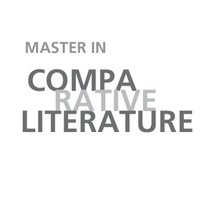Presentation
About the Program
Graduate Program in Comparative Literature – PPGLC
Master’s Degree in Comparative Literature
Field of Concentration: Latin American Poetics and Narratives
Type: In-Person Course
Investment: Free of Charge
The Federal University of Latin American Integration was established with the ideal of integrating the countries of Latin America and the Caribbean and with the purpose of promoting the decolonization of the scientific and cultural thinking of the region.
In order to do this, one of the main objectives is to create professionals who can critically think and who are capable of contributing to the cultural, scientific and educational development and interchange in the region.
In this context, the Graduate Program in Comparative Literature – PPGLC aims at developing researches which focus on the cultural and aesthetic phenomena arising in Latin America and the Caribbean so that it can help build and establish a theoretical, analytical and methodological framework that facilitates decolonized interpretations of the aesthetic representations from this space. Also, our goal is to promote Latin American and Caribbean artistic manifestations, with a special focus on their political, cultural, social, educational and economic importance.
In that perspective, PPGLC intends to open space for comparative reflections on themes such as:
a) social exclusion;
b) border problems related to territory, economy, politics, education, culture and language, among others;
c) institutional and ideological frictions among intellectual groups that create the feeling of identity belongingness in the continent;
d) decolonization of thinking, knowledge and aesthetics;
e) transculturation of memories and imaginaries;
f) confluence and reinterpretation of aesthetic languages in multimedia tools;
g) forms of aesthetic production in Latin America and the Caribbean;
h) careers of intellectuals and artists and profiles of Latin American cultural institutions (magazines, museums, academy, universities and so on);
i) literary literacy – practice, methods and didactics for the insertion of literature in primary education.
